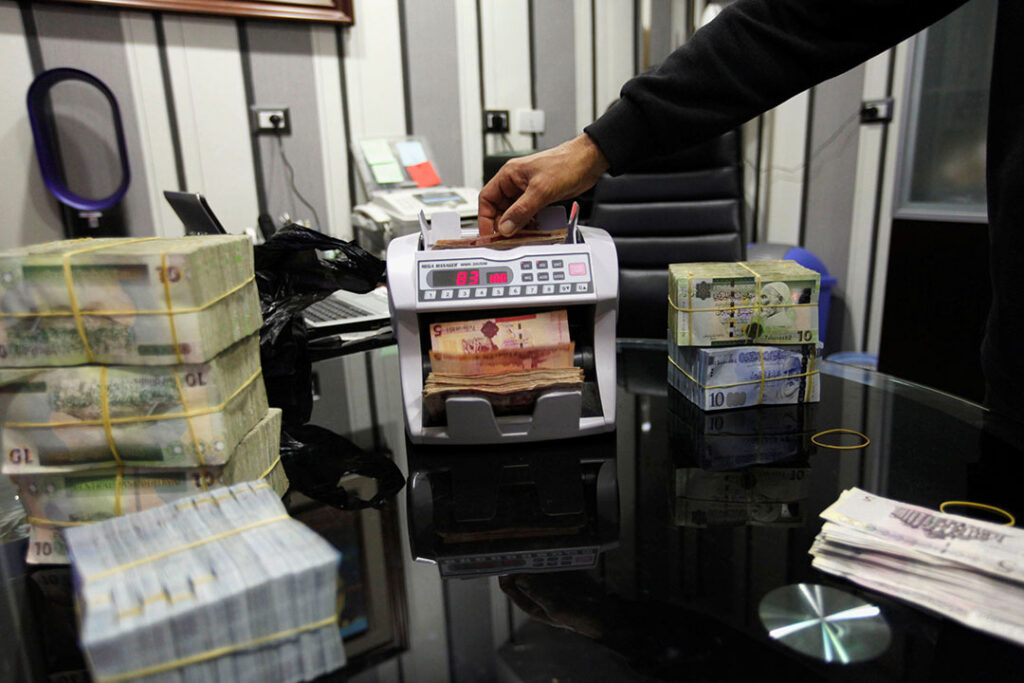ADF STAFF
An enormous trove of counterfeit Libyan dinars intercepted this spring in Malta was printed in Russia and bound for forces loyal to military leader Gen. Khalil Haftar, U.S. and Libyan officials said.
The shipment of $1.1 billion in dinars has been held in Malta ever since. Russia denies they are illegitimate, arguing that Libya has two central banks. The international community recognizes the central bank in Tripoli as the country’s legitimate financial authority.
According to the U.S. State Department, the bank notes were printed to worsen economic conditions in Libya by causing inflation.
“This incident once again highlights the need for Russia to cease its malign and destabilizing actions in Libya,” the State Department said.
A previous shipment of Russian-made dinars was intercepted by Malta in September 2019 on the way to Haftar. Before that, nearly 4.5 billion dinars were shipped from Russia to Tobruk in the first half of 2019 to coincide with the start of Haftar’s 14-month attack on Tripoli, Reuters reported. Another billion dinars were delivered to the east in 2016, according to the Libya Herald.
Legitimate Libyan dinars issued by the United Nations-recognized Government of National Accord (GNA) in Tripoli are printed in the United Kingdom. The illegitimate bills are printed by Joint Stock Company Goznak — a Russian state-owned company.
The fake Libyan dinar bills look nearly identical to official bills but have slight differences, such as the placement of the serial numbers, that might go unnoticed in transactions. By some estimates Haftar’s government flooded the country with nearly 12 billion Russian-made dinars between 2015 and 2020.
The fake bank notes are used to pay Haftar’s fighters and can be found all over the country. They have created inflation, driven down the value of the dinar and undermined the official currency supplied by the central bank in Tripoli, according to Libyan economic analyst Mukhtar Al Jadeed.
“We saw the head of the eastern central bank said that the priority is to fund the war on Tripoli,” Al Jadeed told Al-Jazeera.
The Council of Research and Sharia Studies at the Libyan Fatwa House issued an edict in the fall of 2019 prohibiting the use of the Haftar bills and asked the GNA to take up the matter with the Russian government, according to the Libya Observer.
“The issuance of currency from an unauthorized party would harm the economy of the country on a large scale,” the fatwa read.
Throughout the conflict, the GNA has controlled oil revenues via the central bank in Tripoli. The rival eastern authorities complained that they were not getting their fair share. Since early 2020, Haftar’s attacks have shut down oil production and harmed the country’s export income.
The flood of fake currency is just one way Russian entities have injected themselves into Libya’s civil war.
Hundreds of mercenaries with Russia’s Wagner Group are working alongside Haftar’s forces. They are suspected of booby-trapping residential neighborhoods with Russian-made land mines after Turkish troops helped drive Haftar out of Tripoli in May. Intelligence agencies have reported that aerial photos show Russian MiGs and other aircraft at Libyan military bases held by Haftar’s forces. Wagner Group troops also have been seen at Libyan oil fields.
In Misrata, Libya’s economic hub, business owners are on alert for the fraudulent currency, refusing to accept it for transactions.
“Haftar used this money to destroy our capital,” currency trader Tamer Al-Shahout told Al-Jazeera. “Refusing to deal with it is how we as businessmen are participating in the fight against them.”

